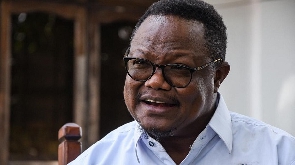General News of Tuesday, 22 August 2017
Source: ghananewsagency.org
CODE supports licensing of teachers by NTC
The Conference of Directors of Education (CODE) has affirmed its support for the licensing of Teachers by the National Teaching Council to improve on the professional competency of teachers.
The Conference has however recommended more education on the issue within the Ghana Education Service (GES) in particular and the public in general.
This was contained in a 10-point communiqué jointly signed by Mrs. Margaret Frempong-Kore and Mr. Isaac Nsiah Edwards, the National President and Secretary respectively and issued at the end of their 24th annual conference on Friday at Abesim, near Sunyani.
It was on the theme “Providing Equitable and Inclusive Education for the Youth: The Gateway to Life-long Opportunities”.
The one-week event was attended by about 200 Directors from the GES Directorates nationwide and aimed among others at sharing ideas and knowledge for best practices and also identifies solutions to the numerous challenges confronting them in the discharge of their responsibilities.
The communiqué expressed the support of the Directors for the government’s Free Senior High School (SHS) programme and suggested an increase in advocacy through the distribution of hard copies of the guidelines of the policy.
It therefore proposed the timely payment of all subsidies in relation to the programme to avoid experiencing the delayed payments associated with the National Health Insurance Scheme (NHIS), School Feeding Programme, the Progressively Free SHS and the Capitation Grant.
The communiqué appealed to government “to make available critical inputs like government of Ghana grants, vehicles, residential and office accommodation and office equipment to the education directorates for effective delivery of Director’s mandate”.
It recommended that the number of subjects being studied at the various levels of education must be reduced, saying that the kindergarten (KG) and lower primary should only be numeracy, literacy and physical education while the upper primary and Junior High School (JHS)from nine to six subjects.
The communiqué identified lack of textbooks, particularly inadequacies in KG-textbooks, crayons and pencils and other teaching, learning and play materials, Primary-English, Mathematics and Science textbooks and JHS textbooks in all subject areas as challenges militating against effective teaching and learning at those levels.
It therefore pleaded with government to address them as matter of urgency for quality service delivery to enhance the general performance of the pupils and students to attain high standard of education at the basic school level.
The communiqué noted that the use of chalk and black boards had out-lived their usefulness in the schools and thus called for the conversion of them to white boards with markers.
It stressed the need for the strict enforcement of the two per cent District Assembly Common Fund Policy and suggested that those funds should be credited to the Accounts of the District Education Directorates to make them accessible.
The communiqué proposed technical and vocational education and training (TVET) courses must be reviewed and rebranded to include industry standards and entrepreneurial skills for the world of work/employment creation.
It further recommended that facilities in the TVET institutions be redesigned and improved to attract more females and people with disabilities.
The communiqué noted there is a big deficit in the supply of furniture at the basic school level and appealed for the award of contract for construction and distribution of furniture at that level to be done at the District level to ensure quality, appropriateness and timely delivery.
It recalled the 2008 educational reforms made pre-school education part of basic school education and in that regard suggested the construction of all new primary schools to have a KG block attached.
The communiqué added that the training of early childhood education teachers should be encouraged by increasing their quota for study leave.












